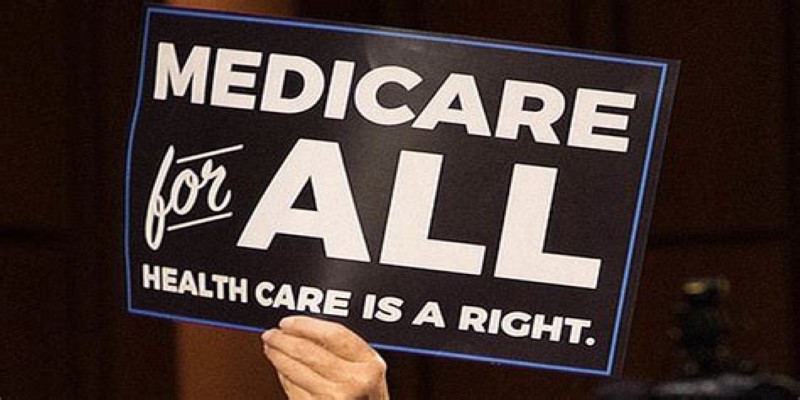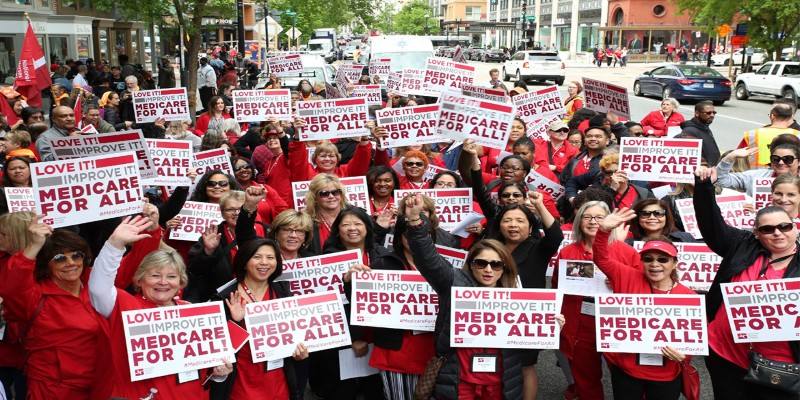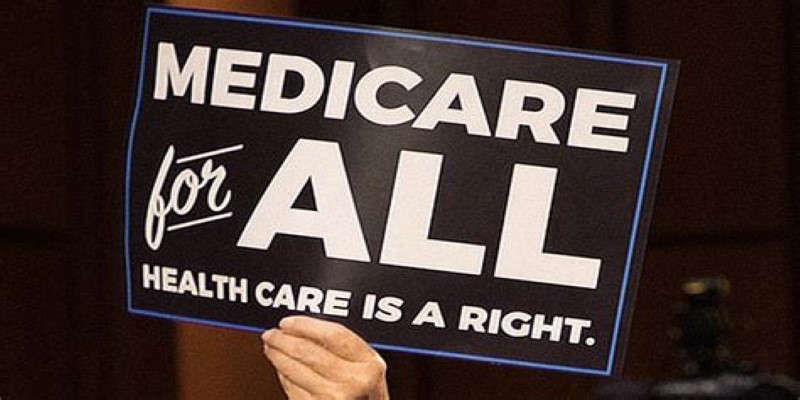Advertisement
The idea of "Medicare for All" has sparked discussions for years, drawing interest from politicians, healthcare experts, and the general public. But what does it really entail, and how might it influence your healthcare? In essence, Medicare for All is a proposal aimed at providing healthcare coverage to everyone in the U.S. through a single-payer system.

The goal is to ensure that everyone has access to necessary care without the burden of expensive bills. However, while the concept seems clear-cut, there are numerous factors to consider, particularly regarding its effects on patients, doctors, and the overall healthcare system. In this article, we’ll explore what Medicare for All could mean for your healthcare.
At its core, Medicare for All is a vision of universal healthcare. Every person, regardless of their income, age, or health status, would be covered under a single government-funded program. Unlike today, where you often have to have private insurance that covers the cost of care, Medicare for All would effectively eliminate private health insurance for most people and replace it with a government-run system.
One of the main goals of this system is to ensure that no one is left without coverage. This would likely reduce the number of uninsured individuals and provide more comprehensive care for those already underinsured. If you’re currently paying premiums or high out-of-pocket costs for your healthcare, Medicare for All could simplify things by covering everything under one umbrella.
How might this play out in the real world? The proposal would have the government oversee healthcare funding, so there would be no need for all the complexity of plans and insurance. You pay in through mostly instead of premiums, copays, or deductibles to make it more straightforward for you to have health services covered and not get yourself burdened with surprise medical bills.

The most direct impact of Medicare for All is how it will change your healthcare coverage. The way things stand today is that many people are protected by private insurance provided directly through their employers or some government programs like Medicaid and Medicare. Medicare for All would combine these systems, all under one roof: you'd be covered from birth to death, regardless of job, income, or preexisting condition.
With Medicare for All, the scope of services covered would be boundless. No more eye-opening when current insurance plans cover nothing at all. It would probably include routine visits to a doctor, hospital stays, surgery, psychiatrists, therapists, and even pharmaceuticals. Therefore, perhaps those days of worrying about costly medical treatments are behind you.
Most of the concerns with Medicare for All have been regarding whether it would cut access to quality care. Would doctors be able to offer the same level of care if the government is footing the bill? The answer depends on how the system is structured. Proponents argue that the government could negotiate better rates with healthcare providers and streamline the system, which could improve overall care. However, critics are afraid that government bureaucracy will result in longer waiting times or less individualized care.
While Medicare for All promises to reduce the cost of healthcare for individuals, it also brings up questions about the financial sustainability of the system. The most obvious change is the way healthcare is paid for. Currently, private insurance companies and employers pay a large portion of healthcare costs, leaving individuals responsible for premiums and out-of-pocket expenses. With Medicare for All, the government would take on these costs, but this would require a significant increase in taxes to fund the program.
Proponents of Medicare for All argue that, in the long run, the system would actually save money. By eliminating the administrative costs of private insurance and negotiating lower drug prices, the government could reduce the overall cost of healthcare. Additionally, preventive care, which is often underfunded in the current system, would likely become more emphasized, reducing the need for expensive emergency care later on.
On the other hand, critics believe the taxes required to fund such a program could be high and that the government may struggle to keep the system running efficiently. Some argue that the government is not prepared to manage the scale of such a program and that it could lead to inefficiencies or reduced care quality.

Another key question around Medicare for All is how it would affect doctors, hospitals, and other healthcare providers. In a system where the government is paying for healthcare, the compensation doctors receive may change. Under the current system, doctors are often reimbursed by private insurance companies, which may pay higher rates for certain services than the government would. This could lead to reduced incomes for healthcare providers, which could cause some to leave the profession or reduce their hours.
However, supporters of Medicare for All argue that a universal system would simplify the process for healthcare providers, eliminating the need to negotiate rates with multiple insurance companies or deal with administrative hurdles. Instead of juggling different plans, healthcare providers could focus solely on patient care. Additionally, the elimination of private insurance premiums could reduce the amount of paperwork and administrative work for healthcare offices, potentially saving time and money.
For patients, this could mean more consistent access to healthcare providers. Instead of dealing with different insurance networks, Medicare for All would ideally create a more straightforward system where access to specialists and other services is simplified.
Medicare for All promises universal healthcare, potentially making care more affordable and accessible. While it could simplify the system and improve health equity, challenges like funding, provider compensation, and care quality remain. If implemented effectively, it could offer a more equitable healthcare system, but its success depends on overcoming these hurdles. The debate continues, but Medicare for All could play a key role in future healthcare reform.
Advertisement

By Elena Davis/Jan 14, 2025

By Martina Wlison/Mar 18, 2025

By Maurice Oliver/Mar 18, 2025

By Aldrich Acheson/Dec 21, 2024

By Celia Shatzman/Mar 18, 2025

By Gabrielle Bennett /Mar 16, 2025

By Darnell Malan/Dec 21, 2024

By Juliana Daniel/Jan 14, 2025

By Susan Kelly/Dec 21, 2024

By Triston Martin/Dec 21, 2024

By Sid Leonard/Dec 21, 2024

By Mason Garvey/Mar 16, 2025